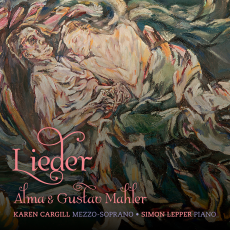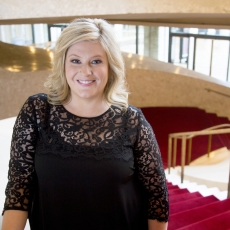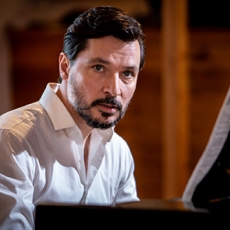Karen Cargill - Mahler: Lieder - Opera News
Karen Cargill made a fine impression in her Met debut as the Götterdämmerung Waltraute in April 2012. Anna in Les Troyens the following December proved another excellent, spirited performance. The rich-voiced Scottish mezzo is slated to return to the house as Wagner's Magdalene in next month's Meistersingervon Nürnberg; otherwise, orchestral and recital dates at prestigious venues occupy much of her current schedule.
Gustav Mahler is one of the composers Cargill's talents often serve. On Linn Records's splendid new recital, she and her frequent recital accompanist Simon Lepper offer two of Mahler's best-known cycles (Rückert Lieder and Lieder eines Fahrenden Gesellen), plus the "Urlicht" section from the Second Symphony - and, for contrast and comparison, five lyric works by Alma Mahler. The renowned Alma, née Schindler, lived from 1879 to 1964, surviving two world wars and ultimately attending Leonard Bernstein's New York Philharmonic rehearsals of Gustav Mahler's works. For some decades, she was best known for her affairs with painter Oskar Kokoschka and others and for her post-Mahler marriages to architect Walter Gropius and novelist Franz Werfel. In recent decades, some singers - including Charlotte Margiono and Lilli Paasikivi, who have recorded the songs in full - have given audiences the chance to hear Alma Mahler's work as a composer. A student of Alexander von Zemlinsky (another of her conquests), Alma wrote and worked on songs and other compositions. Marriage to Gustav Mahler in November 1901 brought a stop to her creative activities - his arrogance dictated that - but her husband did arrange publication of several of Alma's songs in 1910. She may well have resumed song-writing after his death; more works appeared in print in 1915 and 1924. (Three more surfaced in manuscript after her death, two of which were published in 2000.)
Cargill offers the Five Songs published in 1910, some setting words by such fin de siècle contemporaries as Richard Dehmel, Rainer Maria Rilke and Otto Erich Hartleben (the translator of Pierrot Lunaire). Like Zemlinsky's songs, these are tuneful, harmonically playful and professionally worked - pleasant rather than epochal, but worth encountering, especially given the nuanced, lovely vocalism they receive here. Cargill has a fairly substantial voice that never seems to strain, even on full-out numbers such as (Gustav's) "Um Mitternacht." Yet she reveals a full spectrum of dynamics in addition to noteworthy breath control. Her interpretations are never heavy-handed or theatrically demonstrative; she achieves her results with clearly and intelligently projected words and a remarkable range of tone color - the lightness of a soprano when needed, but also considerable genuine mezzo depth. Her liquid and often sensuous instrument retains a fine sheen throughout the program. There exist many admirable recorded versions of these two cycles; Cargill's have the virtue - rare at this point in recording history - of sounding unlike anybody else's. Lepper, among the busier of the younger generation of British collaborative pianists, shows a sure, measured touch in the most challenging passages and deserves equal credit for the musical sophistication and sensitivity that make this disc so rewarding.


